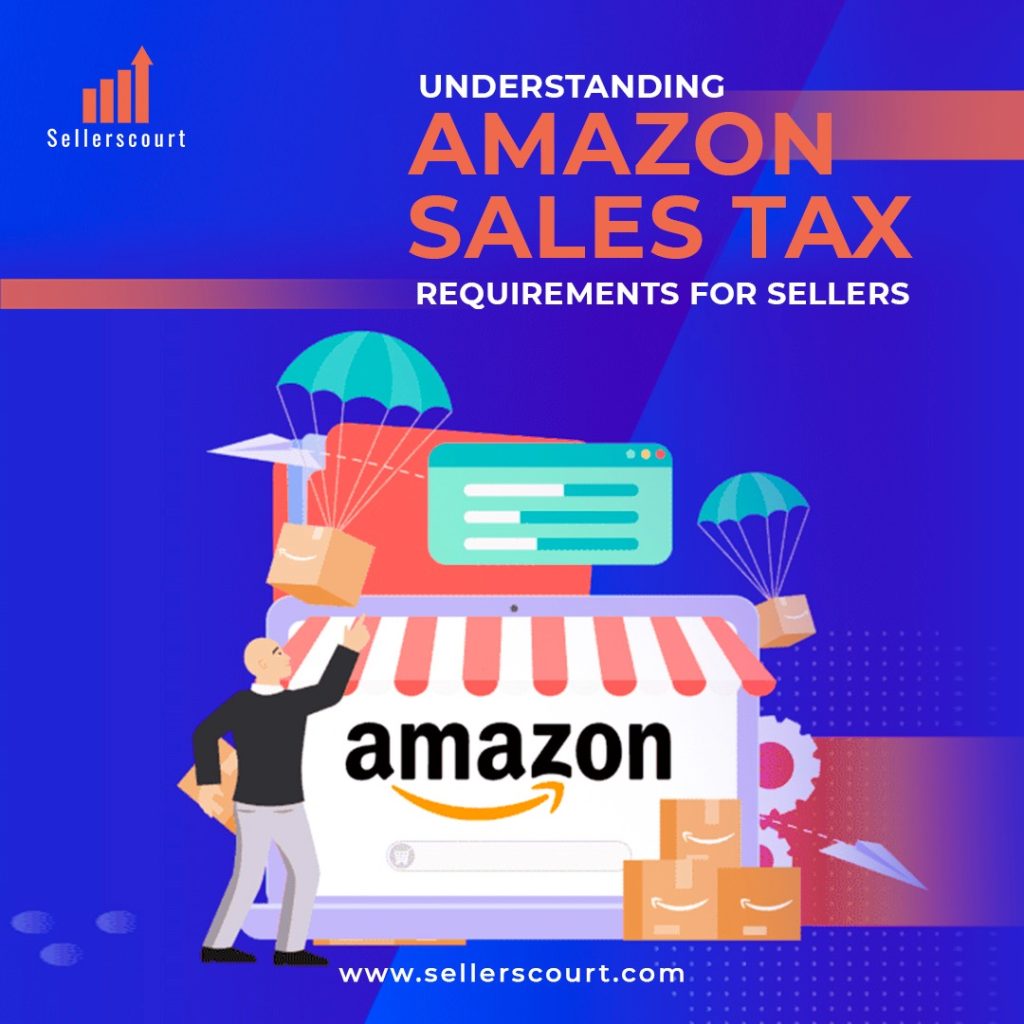
Introduction:
As an e-commerce seller on Amazon, understanding sales tax requirements is crucial for maintaining compliance and avoiding penalties. In this blog post, we’ll provide a comprehensive overview of Amazon’s sales tax requirements for sellers, including when and where to collect sales tax, how to register for a sales tax permit, and how to file sales tax returns. As an Amazon agency with 45 years of combined experience and offices in London and New York, Sellerscourt is here to guide you through the process and ensure you’re meeting all necessary requirements.
When and Where to Collect Sales Tax on Amazon
Amazon’s sales tax requirements vary depending on several factors, including the state where the sale occurs, the product category, and the seller’s physical location. Here are some general guidelines for when and where to collect sales tax on Amazon:
- State Sales Tax Nexus: Sales tax nexus is the legal term for a physical presence in a state that triggers sales tax requirements. If you have a sales tax nexus in a state, you are required to collect and remit sales tax on sales made to customers in that state. Common examples of nexus include having a physical location or employees in a state, storing inventory in a state, or using third-party fulfillment services like Amazon FBA in a state.
- Product Taxability: Some product categories are exempt from sales tax, while others are subject to special tax rates or rules. For example, most states do not collect sales tax on groceries, but they do on clothing and footwear.
- Destination-Based Sales Tax: In most cases, sales tax is based on the destination of the sale, not the seller’s location. This means that if a seller in New York sells a product to a customer in Texas, they must collect and remit sales tax to Texas.
Registering for a Sales Tax Permit
To collect and remit sales tax on Amazon, sellers must first register for a sales tax permit in each state where they have sales tax nexus. To register, follow these steps:
- Determine Your Nexus: Identify the states where you have sales tax nexus, using the guidelines outlined above.
- Complete the Registration Process: Each state has its own registration process for obtaining a sales tax permit. Visit the state’s department of revenue website for detailed instructions.
- Keep Track of Your Sales Tax Permit Numbers: Once you have obtained your sales tax permits, be sure to keep track of the permit numbers and expiration dates.
Filing Sales Tax Returns
After obtaining sales tax permits, sellers must collect and remit sales tax to the appropriate states on a regular basis. Most states require sales tax returns to be filed on a monthly, quarterly, or annual basis. To file sales tax returns, follow these steps:
- Determine Your Filing Frequency: Identify the filing frequency required by each state where you have sales tax nexus.
- Calculate Your Sales Tax Liability: Calculate the amount of sales tax you owe for each state based on your taxable sales and the applicable tax rates.
- File Your Sales Tax Returns: File your sales tax returns with the appropriate state department of revenue by the due date.
Partner with an Amazon Agency for Expert Sales Tax Support
Navigating Amazon’s sales tax requirements can be challenging, but partnering with an experienced Amazon agency like Sellerscourt can help simplify the process and ensure compliance.
With 45 years of combined experience and offices in London and New York, our team of experts is well-equipped to provide guidance on sales tax requirements, registering for sales tax permits, and filing sales tax returns. We can also assist with setting up automated sales tax collection through Amazon, which can streamline the process and help ensure accuracy.
Partnering with an Amazon agency can also help you stay up-to-date on any changes to sales tax requirements, which can vary from state to state and evolve over time. This ensures that you are always in compliance and minimizing your risk of penalties.
Final Thoughts
Understanding and complying with Amazon’s sales tax requirements is crucial for e-commerce success. Failing to meet these requirements can result in penalties and reputational damage, which can be detrimental to your business.
By following the guidelines outlined above and partnering with an experienced Amazon agency like Sellerscourt, you can ensure compliance, streamline the process, and focus on growing your e-commerce business.
